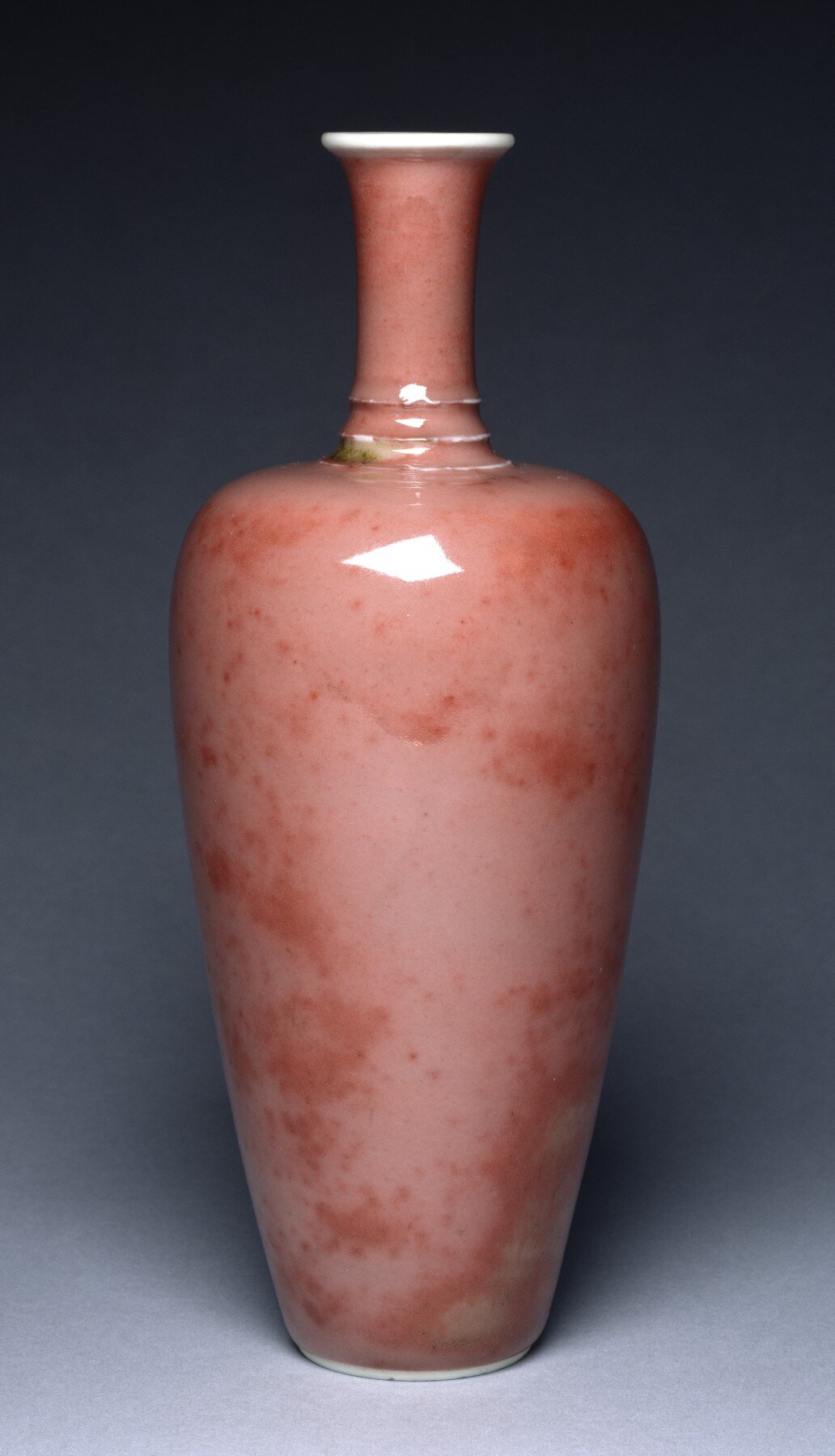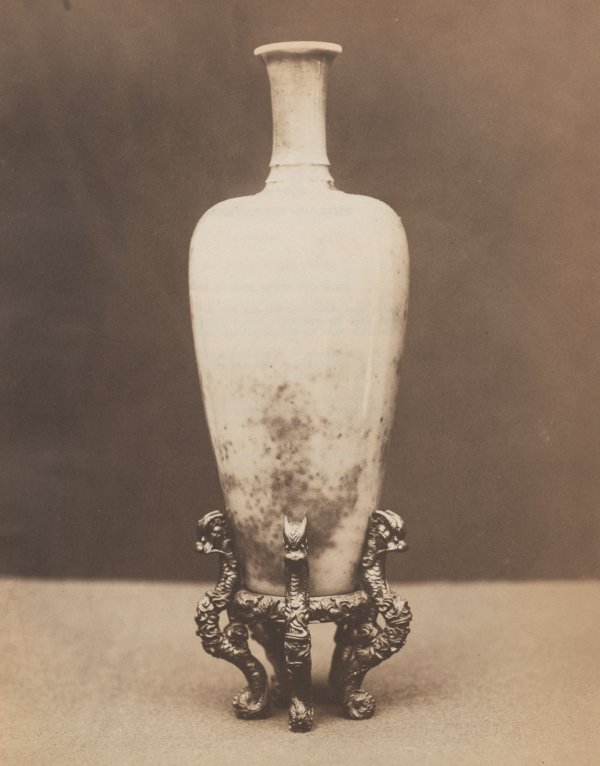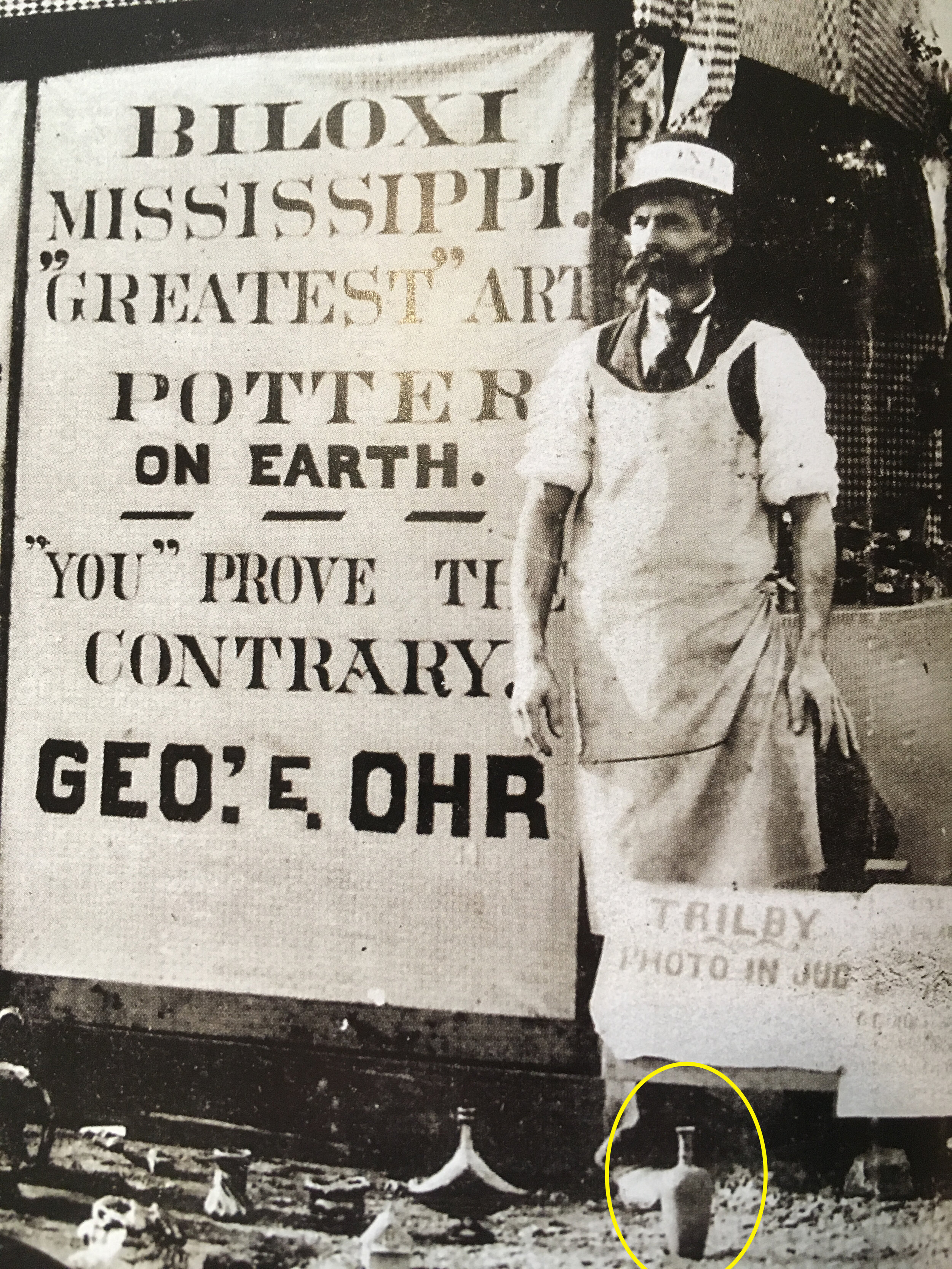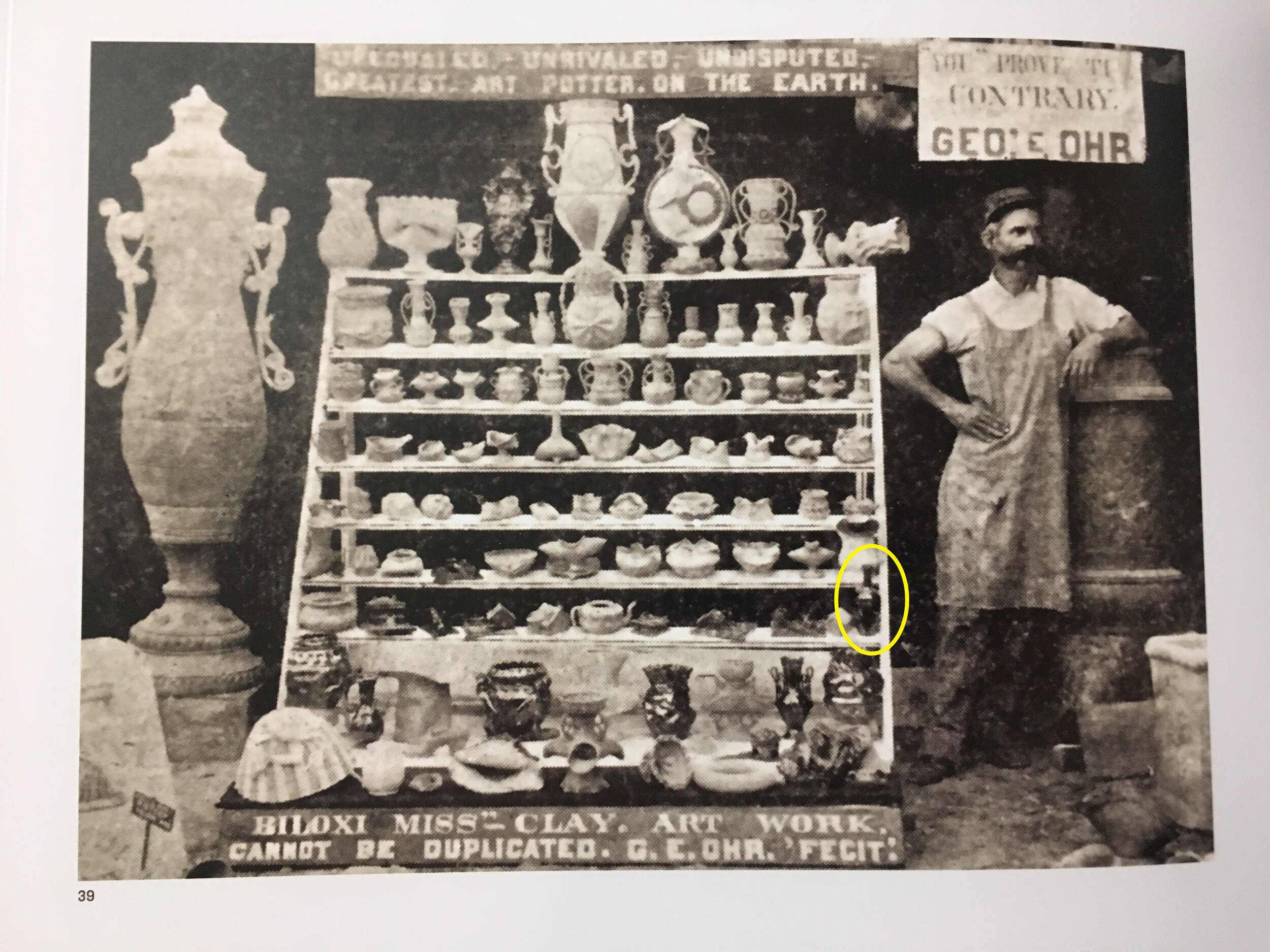In May of 1885, George E. Ohr was packing up “600 pieces, no two alike” that were exhibited at The World’s Industrial and Cotton Centennial Exposition of New Orleans. During transport between New Orleans and Biloxi the works disappeared. This tragic loss began a new era for Ohr’s pottery as a few documented works made prior to WICCE differ from the work that would come in the following months and years would ultimately stake his claim in Art History. One “work” specifically, challenges what I previously thought I knew about Ohr and relates to his own claim that there are “no two alike.” After pouring over many images in the few books published on Ohr, there seems to be an anomaly to this generally accepted stance.
A little less than one year after G.E. Ohr’s pots went missing somewhere in Louisiana, on Monday, March 8, 1886, at New York City’s Chickering Hall, a Porcelain Vase made an appearance on the auction block. That evening Mr. William T. Walter purchased a wheel thrown ceramic work described as “Peach Blow or Crushed Strawberry Color” from the “Art Collection formed by the Late Mrs. Mary J. Morgan.” The description continued, “Vase, of graceful ovoid shape with slender neck, slightly spreading at top, perfection in form, color and texture. Height, exclusive of carved stand, 8 inches, diameter 3 inches. Mark of Kang-he period, 1661-1722. The above from the private collection of I Wang-ye, a Mandarin Prince, has a world-wide reputation as being the finest specimen of its class in existence.” Written in pencil, to the left of the description is the name of the auction winner and the hammer price - Mr. W.T. Walters 18000.00 (approximately $520,000 adjusted for inflation.)
The auction caused quite a stir and numerous articles and editorials were written about the sale. Following the auction on March 24, 1886, The New York Times published an article, “Not Even a Peachblow; That Crushed Strawberry Vase of the Morgan Sale. Originally Purchased in Pekin for 250 Mexican Silver Dollars by the Agent of the Art Association.” This article and others must have made the sale today’s equivalent of a viral sensation. Eventually, G.E. Ohr caught wind of this story and the influence of the bottle made its way into his own work. Even in his own promotional handbill, G.E. Ohr makes a cryptic references to the Peachblow; “My creations have an intrinsic value; in shape, only one on the world’s market- have more merits than the great Peach Blown.”
Below are a few images from George E. Ohr’s career where the Peachblow vessel makes appearances among other works treasured by Ohr.
Sources:
Clark, Garth, Robert Ellison, Jr. and Eugene Hecht. The Mad Potter of Biloxi: The Art & Life of George E. Ohr. Abbevile Press, 1989.
Hecht, Eugene. George Ohr: The Greatest Potter on Earth. Skira Rizzoli Publications, 2013.
https://archive.org/details/frick-31072002472365/page/n125/mode/2up
https://archive.org/details/frick-31072002472365/page/n137/mode/2up
From Auction Catalogue “
Art Collection formed by the Late Mrs. Mary J. Morgan”
“Vase, of graceful ovoid shape with slender neck, slightly spreading at top, perfection in form, color and texture. Height, exclusive of carved stand, 8 inches, diameter 3 inches. Mark of Kang-he period, 1661-1722. The above from the private collection of I Wang-ye, a Mandarin Prince, has a world-wide reputation as being the finest specimen of its class in existence.”





